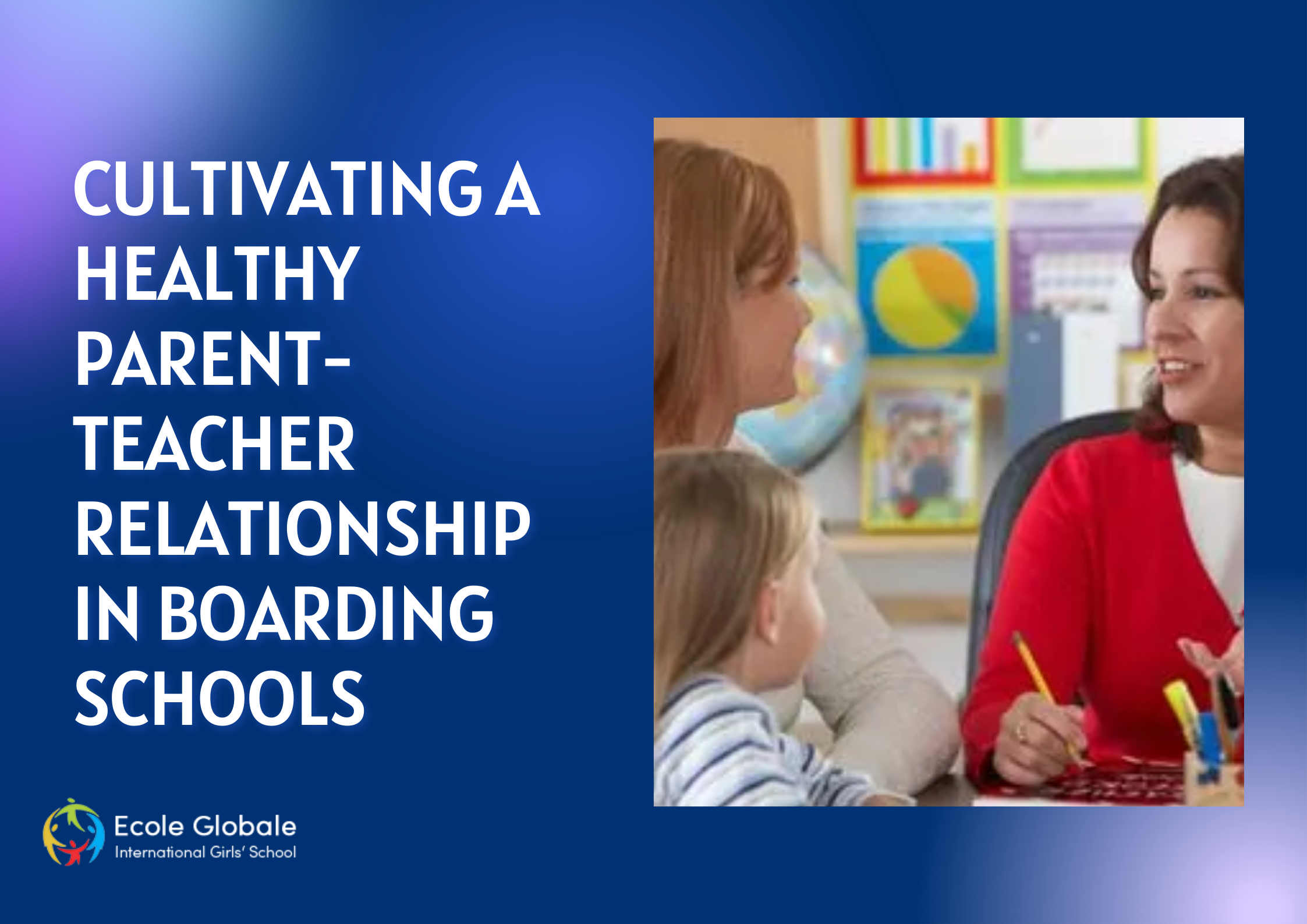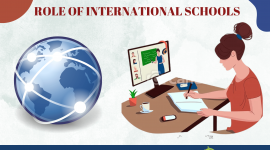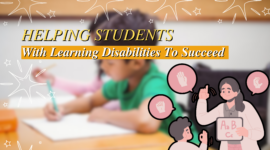In the dynamic landscape of education, the importance of a robust partnership between parents and teachers cannot be overstated.
A healthy parent-teacher relationship is characterized by effective communication, mutual respect, and collaborative efforts to support a student’s academic and personal development. With their unique challenges and opportunities, boarding schools require an even more intentional approach to fostering this essential alliance.
Importance of a Strong Partnership in Education
The foundation of a student’s success often lies in the strength of the collaboration between parents and teachers. When parents and teachers work hand in hand, students benefit from a seamless learning experience that bridges the gap between home and school.
In boarding schools, where students spend a significant portion of their time away from their families, the role of parents becomes even more critical in providing emotional and academic support.
Specific Challenges in Boarding Schools
Boarding schools introduce a distinctive set of challenges to the healthy parent-teacher relationship. The physical separation between students and their families can create communication barriers and hinder parental involvement.
Additionally, understanding and navigating the unique dynamics of a boarding school environment is crucial for both parents and teachers.
Understanding the Roles
Clarifying the Roles of Parents
Supporting Academic Development
Parents play a pivotal role in supporting their child’s academic journey. This involves creating a conducive study environment at home, providing necessary resources, and actively participating in discussions about educational goals and progress.
Boarding school parents must navigate the challenge of offering this support from a distance, emphasizing the importance of healthy parent-teacher relationship through different communication channels.
Nurturing Social and Emotional Well-being
Beyond academics, parents contribute significantly to their children’s social and emotional well-being. This includes staying attuned to the emotional challenges of adolescence and providing a supportive ear.
Parents become essential anchors for emotional support in boarding schools, where students may face homesickness and adjustment issues by maintaining healthy parent-teacher relationship.
Defining the Role of Teachers
Academic Guidance
Teachers in boarding schools must not only deliver quality education but also assume a guiding role in students’ lives.
This involves understanding each student’s unique needs, fostering a passion for learning, and providing guidance on academic and career choices. Effectively communicating these insights to parents helps create a holistic understanding of the student’s development of healthy parent-teacher relationship.
Creating a Supportive Environment
Teachers also contribute to students’ overall well-being by creating a supportive and inclusive learning environment. This involves promoting positive peer relationships, promptly addressing behavioral issues, and collaborating with parents to ensure a consistent discipline and character development approach by a healthy parent-teacher relationship.
Communication Strategies
Regular Parent-Teacher Conferences
Scheduling and Planning
Regular face-to-face meetings between parents and teachers provide a valuable platform for discussing a student’s progress, addressing concerns, and setting future goals.
Efficient scheduling and planning ensure that these conferences are meaningful and productive. Virtual conferences can be employed to bridge the gap in the context of boarding schools, where physical distance may pose challenges by healthy Parent-Teacher Relationship .
Setting Agenda and Goals
A well-defined agenda ensures that parent-teacher conferences cover all relevant aspects of a student’s academic and personal development. Establishing clear goals for these meetings helps maintain focus and enables both parties to work collaboratively toward the student’s best interests by Parent-Teacher Relationship .
Utilizing Technology for Updates
Online Platforms and Apps
Leveraging technology is crucial in overcoming the physical distance between parents and teachers in boarding schools.
Online platforms and mobile apps can provide real-time updates on students’ academic performance, behavior, and overall well-being. This keeps parents informed and encourages their active involvement in their child’s education by forming healthy Parent-Teacher Relationship .
Email and Virtual Meetings
Email communication facilitates ongoing dialogue between parents and teachers. Additionally, virtual meetings offer a convenient way to connect, discuss concerns, and strategize ways to support the student’s growth. Embracing these technological tools enhances communication and strengthens the partnership between parents and teachers.
Building Trust
Transparency in Communication
Sharing Academic Progress
Transparent communication about a student’s academic progress is foundational to building trust. Teachers must provide timely updates on grades, assessments, and classroom performance. Similarly, parents should feel empowered to communicate their expectations and concerns openly.
Addressing Concerns Promptly
Timely resolution of concerns is essential to prevent misunderstandings from escalating. Whether academic or behavioral, addressing concerns promptly demonstrates a commitment to the student’s well-being and fosters a sense of trust between parents and teachers.
Involving Parents in Decision-Making
Inclusive Approach to School Policies
Boarding schools should adopt an inclusive approach to decision-making, involving parents in discussions about school policies, changes, and initiatives. This collaborative approach enhances transparency and ensures that policies consider the diverse needs and perspectives of the school community.
Seeking Feedback and Suggestions
Actively seeking feedback from parents and incorporating their suggestions into the decision-making process strengthens the sense of partnership. This collaborative spirit is particularly vital in boarding schools, where the involvement of parents may require more deliberate efforts.
Parent Involvement in School Activities
Encouraging Participation in Events
Sports Competitions
Parents’ involvement in sports events not only supports the physical development of students but also fosters a sense of community. Encouraging parents to attend and participate in sports competitions creates a positive atmosphere and strengthens the bond between the school, parents, and students.
Cultural and Academic Functions
Cultural and academic events allow parents to witness and celebrate their child’s talents. Boarding schools can organize these functions in a way that accommodates the participation of parents, even if they are geographically distant. Live-streaming events, creating virtual galleries, or organizing interactive online sessions are ways to include parents in these significant moments.
Volunteering Opportunities
Classroom Assistance
Parental involvement in classrooms can extend beyond traditional parent-teacher conferences. Creating opportunities for parents to volunteer in classrooms, whether physically or virtually, fosters a deeper understanding of the educational environment and allows parents to contribute directly to the learning experience through a healthy Parent-Teacher Relationship.
Extracurricular Activities Support
Extracurricular activities play a crucial role in a student’s holistic development. In boarding schools, parents can support these activities by volunteering as coaches, mentors, or organizers. This not only enhances the quality of extracurricular programs but also provides parents with avenues to actively engage in their child’s interests.
Addressing Challenges
Acknowledging and Resolving Conflicts
Effective Conflict Resolution Strategies
Conflicts, whether between students, parents, or teachers, are inevitable. Implementing effective conflict resolution strategies, such as open communication, mediation, and compromise, ensures that conflicts are addressed constructively, preserving the integrity of the healthy parent-teacher relationship.
Fostering Open Dialogue
Creating an environment where open dialogue is encouraged helps prevent conflicts from escalating. Teachers and parents should feel comfortable expressing their concerns, seeking clarification, and working collaboratively to find solutions a healthy Parent-Teacher Relationship.
Providing Resources for Support
Counseling Services
Boarding schools can offer counseling services to students and parents to address emotional, behavioral, or academic challenges.
Access to professional counseling ensures that individuals receive the support they need to navigate the complexities of the boarding school experience.
Workshops and Training for Parents
Providing workshops and training sessions for parents equips them with the necessary tools and insights to effectively support their child’s education.
Topics may include understanding adolescent development, navigating the boarding school environment, and fostering positive communication skills by a healthy Parent-Teacher relationship.
Celebrating Achievements
Recognizing Student Successes
Academic Achievements
Celebrating academic achievements, whether big or small, reinforces a positive learning environment. Recognizing students for their hard work and accomplishments encourages continued effort and dedication to their studies.
Personal and Behavioral Milestones
Beyond academics, acknowledging personal and behavioral milestones is equally important. Recognizing improvements in behavior, character development, and social skills contributes to a well-rounded approach to celebrating student success.
Showing Appreciation for Parental Contributions
Acknowledging Efforts
Teachers should express appreciation for the efforts parents invest in their child’s education. Whether through volunteering, attending events, or actively participating in the educational journey, acknowledging these contributions reinforces the sense of partnership.
Creating a Positive Feedback Loop
Establishing a positive feedback loop, where both parents and teachers routinely recognize and appreciate each other’s contributions, strengthens the healthy parent-teacher relationship. This mutual appreciation fosters a collaborative spirit that benefits the student and the entire school community.
Conclusion
Cultivating a healthy parent-teacher relationship in boarding schools requires a multifaceted approach. By clarifying roles, improving communication, building trust, encouraging parent involvement, addressing challenges, and celebrating achievements, a strong foundation is laid for the student’s success and the school community’s overall well-being.
Reinforcing the Importance of Collaboration
Emphasizing the collaborative nature of the healthy parent-teacher relationship is essential. When parents and teachers work together, they create an educational support system that nurtures students academically, emotionally, and socially. The partnership between parents and teachers is not only beneficial for the student but also contributes to the overall success and positive culture of the boarding school.
Aiming for Long-Term Positive Impact on Students
The ultimate goal of cultivating a healthy parent-teacher relationship is to have a lasting positive impact on students. When parents and teachers collaborate effectively, students receive consistent support, guidance, and encouragement, setting them on a path to success both in their academic pursuits and personal development.
The efforts invested in building and maintaining this relationship contribute to a thriving educational community that values the well-being and growth of every student.















